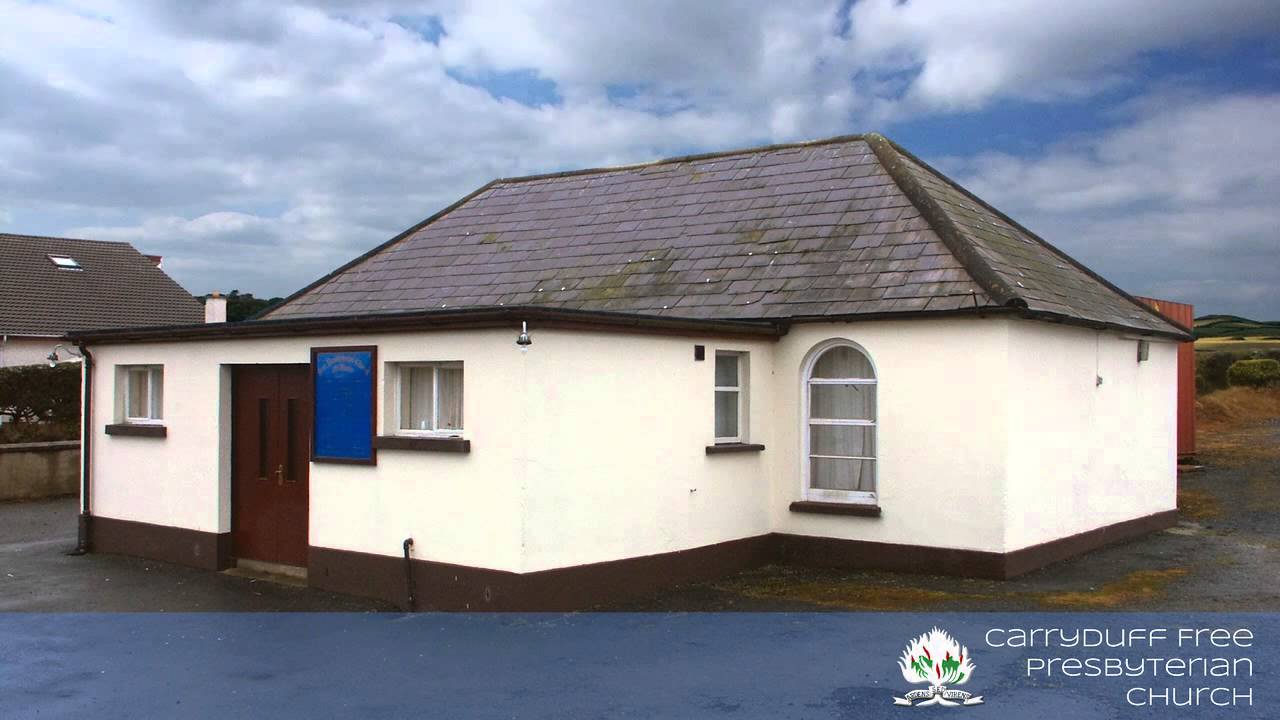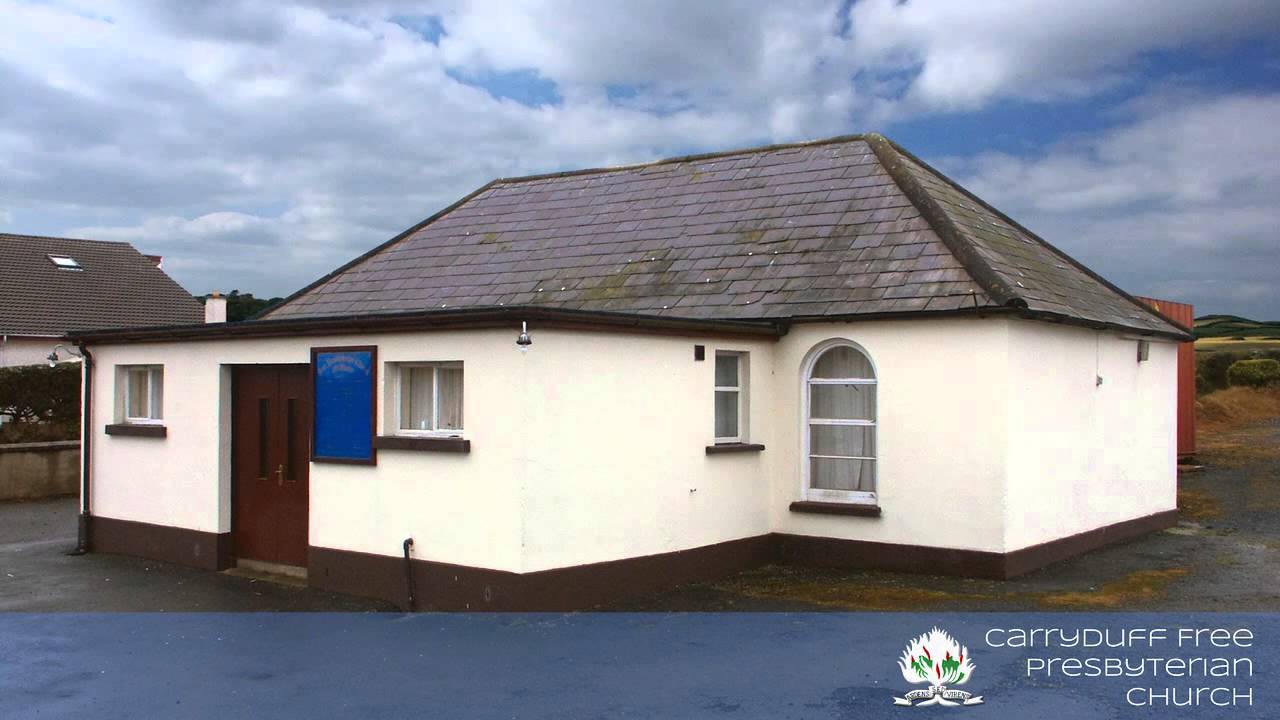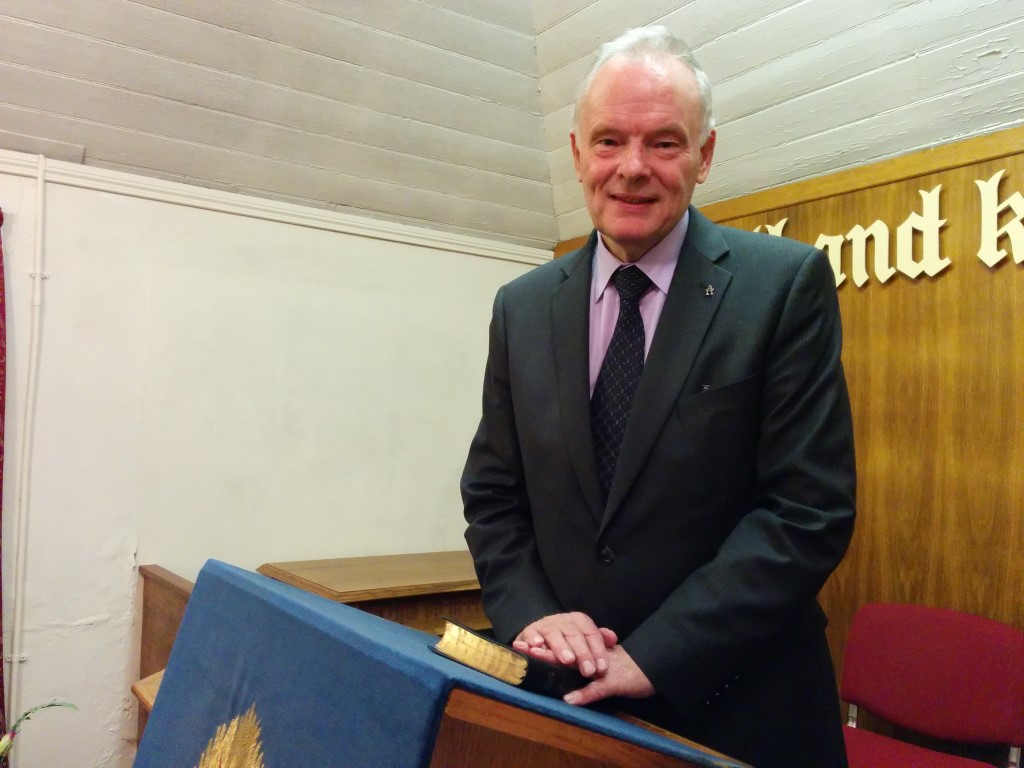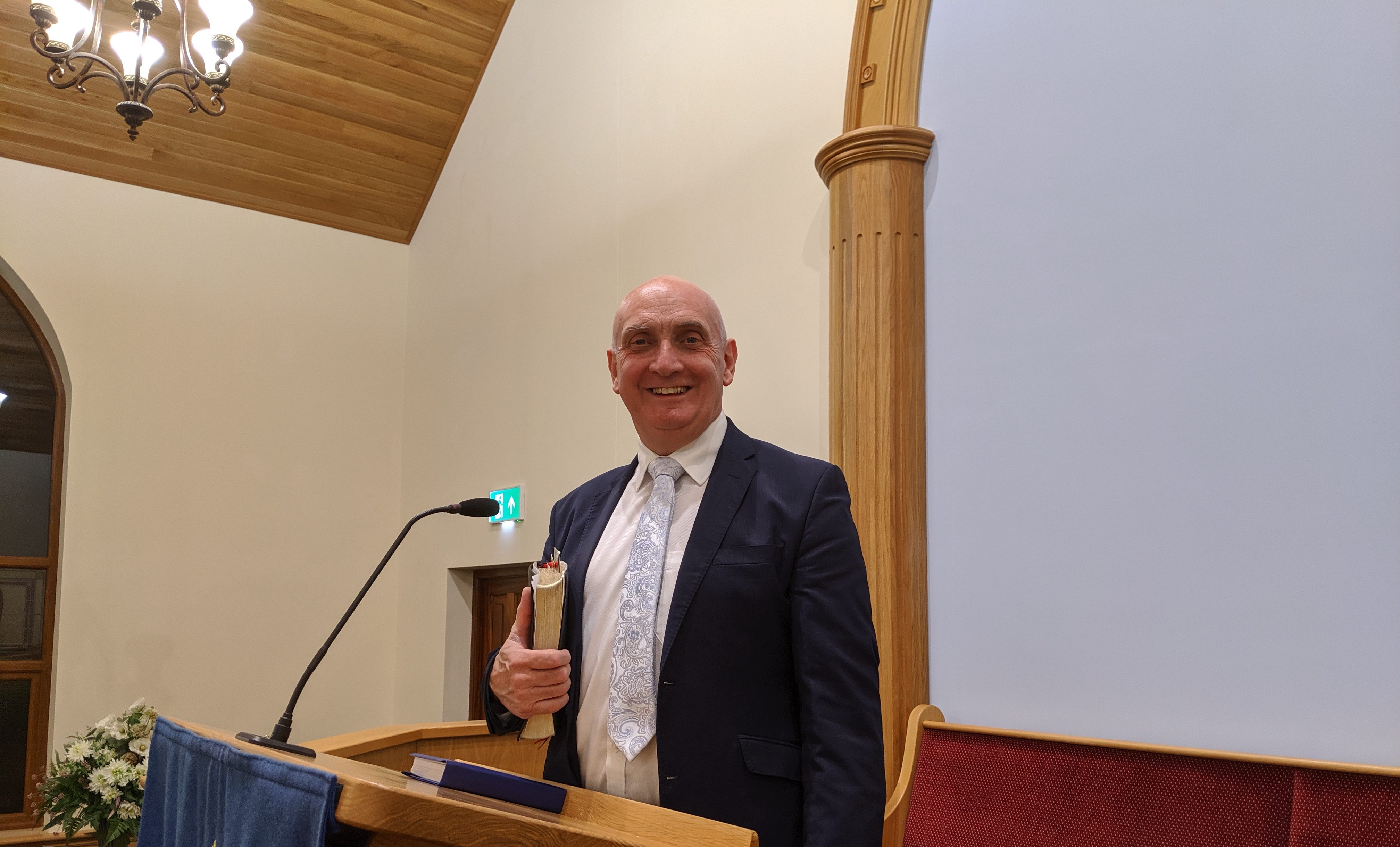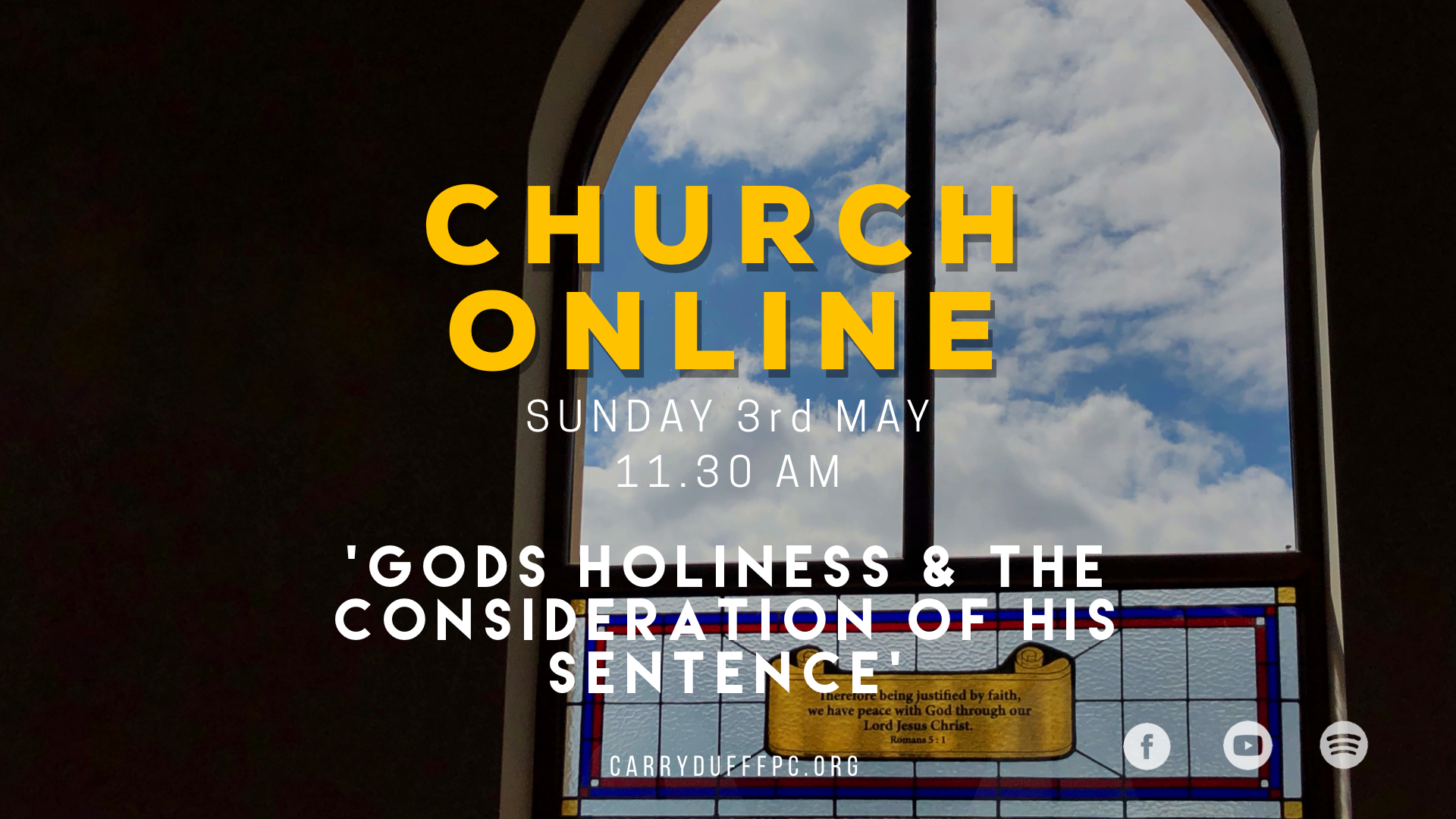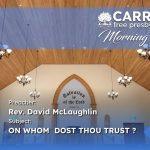Date: MON 8:00 PM 9th June 2025
Singer: Rebekah Walker
Preacher: Mr. Noel Shields
Bible Reference: Exodus 5:2
And Pharaoh said, Who is the LORD, that I should obey his voice to let Israel go? I know not the LORD, neither will I let Israel go.
Sermon Summary: From Throne to Hell – The Life and Fall of Pharaoh
Introduction and Context
The sermon, delivered with a focus on the biblical account of Pharaoh in the Book of Exodus, chapters 5 and 14, explores Pharaoh’s defiance of God, his attempts to compromise with God’s commands, and his ultimate destruction. The preacher uses Pharaoh’s story as a cautionary tale, urging the congregation to reflect on their own spiritual state, repent, and trust in Jesus Christ for salvation. The sermon is delivered in a passionate, evangelistic tone, emphasizing the urgency of turning to God to avoid eternal judgment.
Opening Remarks
The sermon begins with a warm greeting to the congregation, expressing gratitude for their presence and appreciation for the worship led by Sister Rebecca, who sang about Christ as the Great High Priest who intercedes for believers in heaven. The preacher sets the stage by directing attention to Exodus 5:1 and 14:26-28, which frame the narrative of Pharaoh’s confrontation with Moses and his eventual demise in the Red Sea.
Scriptural Foundation
- Exodus 5:1: Moses and Aaron confront Pharaoh, delivering God’s command: “Thus saith the Lord God of Israel, Let my people go, that they may hold a feast unto me in the wilderness.” Pharaoh responds defiantly, saying, “Who is the Lord, that I should obey his voice to let Israel go? I know not the Lord, neither will I let Israel go.”
- Exodus 14:26-28: After pursuing the Israelites to the Red Sea, Pharaoh and his army are destroyed when God instructs Moses to stretch out his hand, causing the sea to collapse on the Egyptians, leaving none alive.
Main Theme: Pharaoh’s Journey from Throne to Hell
The preacher structures the sermon around three key aspects of Pharaoh’s life: his defiance, his deals, and his death, using these to draw parallels to modern-day rejection of God and the consequences of unrepentant sin.
- Pharaoh’s Defiance
- Defiance of God’s Character: Pharaoh’s response, “Who is the Lord?” reflects his rejection of God’s authority. Despite Moses speaking in God’s name, Pharaoh arrogantly asserts his own power as king, dismissing God as irrelevant. The preacher emphasizes that Pharaoh’s attitude mirrors that of many today who deny God’s existence or authority, citing Psalm 14:1, “The fool hath said in his heart, There is no God.”
- Defiance of God’s Command: God’s clear instruction was to let the Israelites go to worship Him, but Pharaoh not only refuses but increases the Israelites’ burdens (Exodus 5:6-9), calling God’s command a lie. The preacher compares this to modern unbelief, where people reject God’s moral law (e.g., the Ten Commandments, Exodus 20) and live as if they are their own gods, seated on their own “thrones” of pride and self-sufficiency.
- Application: The preacher warns that many in the congregation or listening online may be defying God by rejecting His gospel or living in unrepentant sin. He cites examples like T-shirts proclaiming, “I don’t care what the Bible says” or labeling the Bible as “lies my father told me,” illustrating a cultural rejection of God’s Word. The call is to repent and acknowledge God as Creator (Genesis 2:4), Almighty (Genesis 17:1), and King (Psalm 47:2).
- Pharaoh’s Deals
- Pharaoh, facing God’s plagues, attempts to negotiate with Moses rather than fully obey God’s command. The preacher highlights two specific compromises:
- Compromise on Separation (Exodus 8:25-28): Pharaoh tells Moses the Israelites can worship but must stay in Egypt and not go far. This reflects a reluctance to fully separate from sin. The preacher warns that salvation requires complete separation from the world—leaving behind sinful habits, environments (e.g., “pubs and clubs”), and sometimes even unsupportive family or friends. He cites Luke 13:5, “Except ye repent, ye shall all likewise perish,” emphasizing that partial commitment is insufficient.
- Compromise on Sacrifice (Exodus 10:24): Pharaoh allows the Israelites to leave but insists they not take their flocks for sacrifices, effectively denying the need for a blood offering. The preacher connects this to the necessity of Christ’s blood for salvation, referencing Hebrews 9:22, “Without shedding of blood is no remission.” He contrasts Pharaoh’s “bloodless religion” with the biblical truth that salvation comes only through Christ’s sacrifice, as seen in Noah’s offerings (Genesis 8:20) and the gospel message (1 Corinthians 15:3-4).
- Application: The preacher challenges the congregation to reject half-measures in their faith. Salvation requires full commitment—repenting, trusting Christ, and relying on His blood for forgiveness. He warns against the devil’s lie that one can be saved without sacrifice or radical change, urging listeners to “come right out” for Christ.
- Pharaoh, facing God’s plagues, attempts to negotiate with Moses rather than fully obey God’s command. The preacher highlights two specific compromises:
- Pharaoh’s Death
- The sermon culminates in the account of Pharaoh’s destruction in the Red Sea (Exodus 14:26-28). Unaware that he was heading to his death, Pharaoh pursued the Israelites in his chariot, only to be overthrown by God’s judgment. The preacher underscores the suddenness and finality of this event, noting that Pharaoh lost everything—his possessions, his power, and his soul, descending from a throne to “the depths of hell.”
- Application: The preacher uses Pharaoh’s fate to warn of the certainty and unpredictability of death, citing Hebrews 9:27, “It is appointed unto men once to die, but after this the judgment.” He shares an anecdote about a woman who expected to live a year but died within a week, illustrating how death can come unexpectedly. The congregation is urged to examine their readiness to meet God, emphasizing that without Christ, they face eternal judgment. The preacher passionately calls for repentance and faith in Christ, who can save “to the uttermost” and cleanse through His blood.
Conclusion and Call to Action
The sermon concludes with a fervent evangelistic appeal. The preacher contrasts Pharaoh’s tragic end with the hope offered through Jesus Christ, the “mighty, loving, great Saviour.” He urges listeners not to leave the meeting without trusting Christ, warning that rejecting Him risks a “great fall” like Pharaoh’s. The invitation is extended to speak with the preacher or others for spiritual guidance, emphasizing the urgency of salvation: “Don’t go home without Christ tonight.” The sermon closes with a prayer that God’s Word would pierce hearts and lead to salvation.
Key Themes and Lessons
- Defiance Leads to Destruction: Pharaoh’s rejection of God’s authority and commands led to his downfall, serving as a warning to those who defy God today.
- No Compromise in Salvation: Partial obedience or a “bloodless” religion cannot save; true salvation requires full repentance and reliance on Christ’s sacrifice.
- Urgency of Decision: Death is certain and often sudden, making it critical to trust Christ now to secure eternal life rather than eternal judgment.
- Power of the Gospel: The blood of Jesus Christ is the only means of forgiveness and salvation, and He is ready to save all who come to Him.
The sermon is a compelling blend of biblical exposition, contemporary application, and evangelistic fervor, designed to convict listeners of their sin and point them to Christ as the only way to eternal life.
Subscribe to the podcast here:
Spotify Podcasts | Apple Podcasts | Pocket Casts
Email | RSS | more information here



